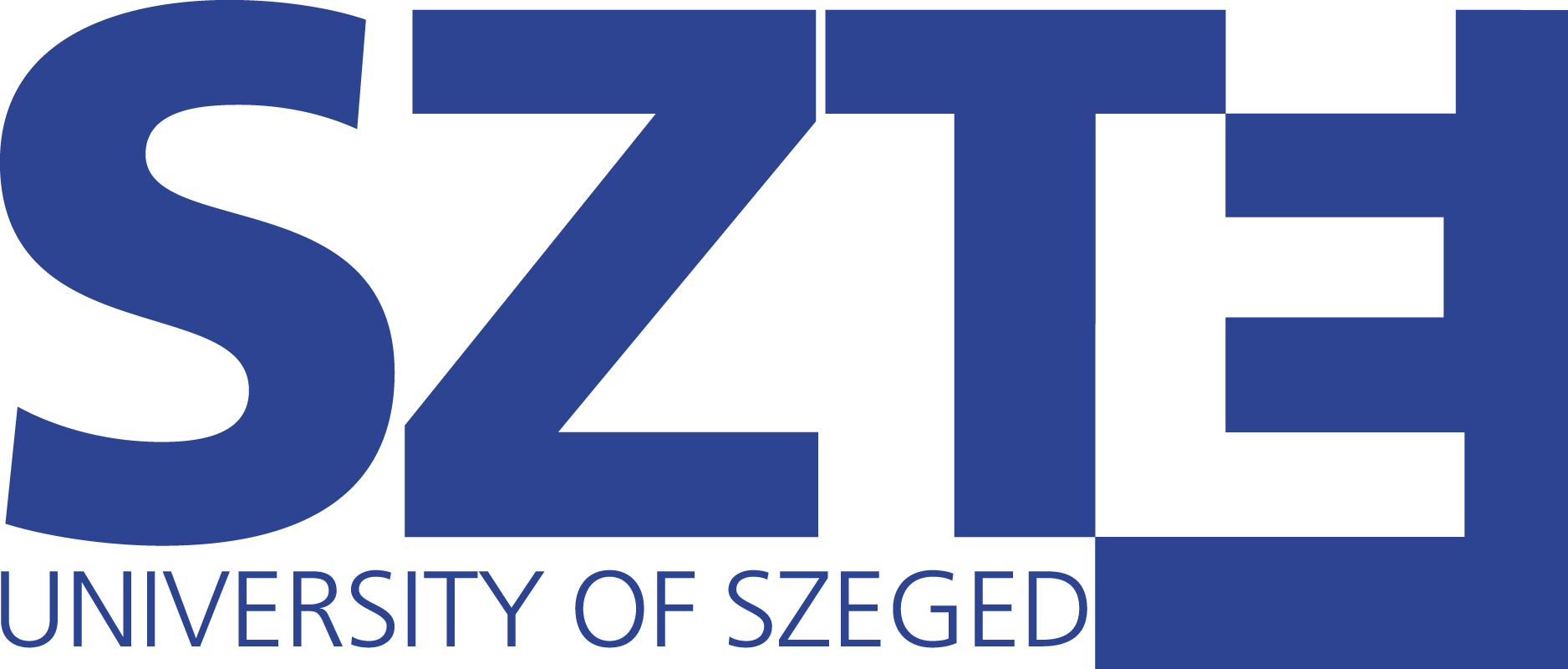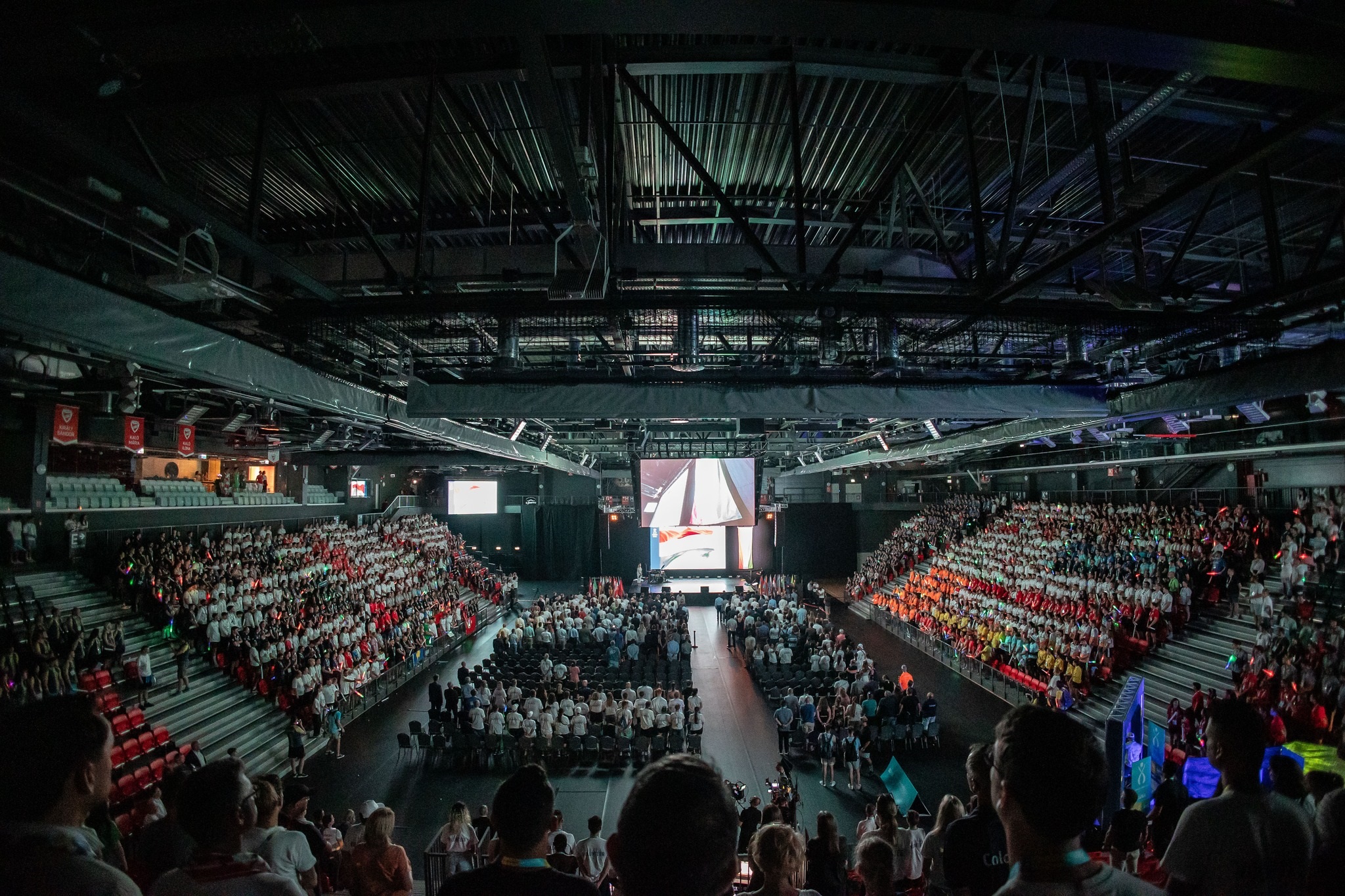
This year, over 5,000 students from 400 universities in 40 countries participated in the biennial multi-sport event, the European University Games. Hosted by Hungary, the sporting events were held in Debrecen and Miskolc. SZTE students came home with medals.
The European University Games is one of the world's largest university multi-sport events, where athletes from European universities compete to represent their higher education institutions. The event is held in even-numbered years in university cities that are able to host competitions in all 17 sports concerned, both in terms of infrastructure and other aspects.
In 2018, the European University Sports Association (EUSA) decided in favor of Debrecen and Miskolc to co-host the 6th European Universities Games (EUG). This year's event was organized by the Hungarian University Sports Federation (MEFS) in cooperation with the University of Debrecen, the University of Miskolc, the National Event Management Agency, and the cities of Debrecen and Miskolc.
22 higher education institutions represented Hungary at the event, including the two hosts and the University of Szeged. More than 550 Hungarian athletes competed in all 17 sports, making it the largest delegation ever. The competitions took place between July 12-24.
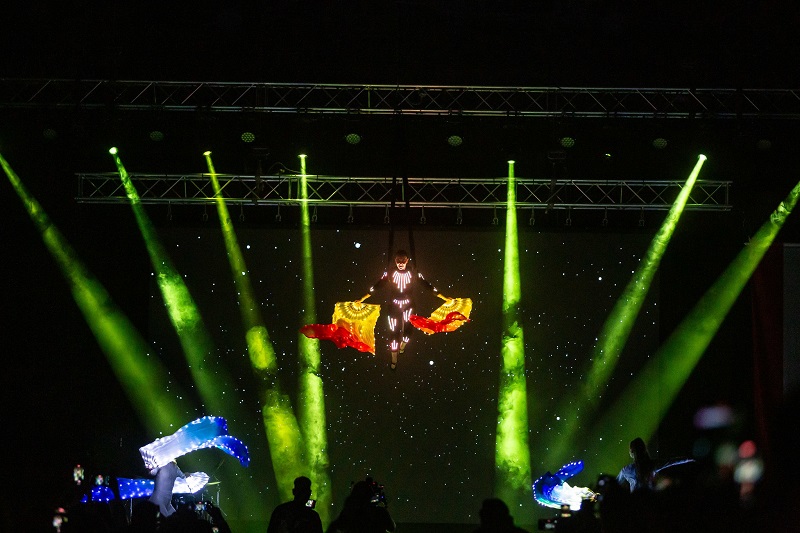
Prof. Dr. h.c. Lajos Mocsai, President of the MEFS, welcomed the young representatives of university sports life and emphasized in his speech that like all multi-sport events, this one is not only about sport but also about community building. For the students, performance, and competition, whether it is learning or sport, is as important as the sense of community and belonging, he explained.
Results of SZTE students:
Zorka Gera - gold medal in kickbox/K1 women's 65 kg.
Réka Karácsondi - silver medal in kickbox/pointfighting women's 55 kg.
Réka Karácsondi - bronze medal in kickbox/kick light women’s 55 kg.
Dóra Melinda Török - bronze medal in kickbox/pointfighting 65+ kg.
“This year's EUSA University Games were hosted in Debrecen and Miskolc. Our sport, kickboxing, took place in Miskolc. The organization was very high quality, both in terms of the competition and the various programs. I started with kickbox kick light on Friday, where I finished with a bronze medal, and then on Saturday I won a silver medal in pointfighting. The kick light didn't go as well as I would have liked, but my initial disappointment has been replaced by a renewed motivation to improve. I learned a lot during the competition, and overall I was part of a very good community, where I received a lot of encouragement,” said Réka Karácsondi, a student at the Juhász Gyula Faculty of Education, Special Needs Education major of the University of Szeged.
“The competition was held in a friendly, family atmosphere and the organizers were always helpful. The judging was up to the usual WAKO standard we're used to, the judges were fair. The students of SZTE, our competitors, are skillful fighters, skilled and experienced, which was reflected in the results. Zorka solved the semi-final and later the final in a very skillful and high-quality way, which resulted in a gold medal. Dorka was up against a very skilled, experienced opponent, with whom she played a one-on-one match, but slowly, tactically, and cleverly she managed to win. An unfortunate injury forced us to give up the match, which resulted in a bronze medal. Réka competed in two disciplines. The first was kick light, where she faced an unpleasant opponent, who she fought hard against, but came out defeated so she won the bronze medal. The other was pointfighting, where she was up against a multiple European Cup winner athlete and also did not give in easily, which was enough for a silver medal. Overall, the team did very well, the girls played well and did their best to win. So we left with 4 medals, although it could have been more," said Ádám Vida, SZTE team captain.
University students from the following countries took part in the 6th European University Games: Albania, Austria, Azerbaijan, Belgium, Bosnia, Bulgaria, Cyprus, Czech Republic, United Kingdom, North Macedonia, Estonia, Finland, France, Georgia, Netherlands, Croatia, Ireland, Iceland, Kosovo, Poland, Lithuania, Hungary, Moldova, Montenegro, Germany, Norway, Italy, Armenia, Portugal, Romania, Spain, Switzerland, Slovakia, Slovenia, Turkey, and Ukraine. From Hungary, students of the Budapest University of Economics (BGE), Budapest University of Technology and Economics (BME), Corvinus University of Budapest (BCE), EDUTUS University (EDUTUS), Eötvös Loránd University (ELTE), Eszterházy Károly Catholic University (EKKE), Hungarian Agricultural and Life Sciences University (MATE), Hungarian University of Sports Science (MTSE), Neumann János University (NJE), Károli Gáspár Catholic University (KRE), Kodolányi János University (KJE), National University of Public Service (NKE), Óbuda University (ÓE), Pázmány Péter Catholic University (PPKE), Semmelweis University (SE), Széchenyi István University (SZE), University of Debrecen (DE), University of Miskolc (ME), University of Nyíregyháza (NYE), University of Pannonia (PE), University of Pécs (PTE), University of Szeged (SZTE) participated in the sports event.
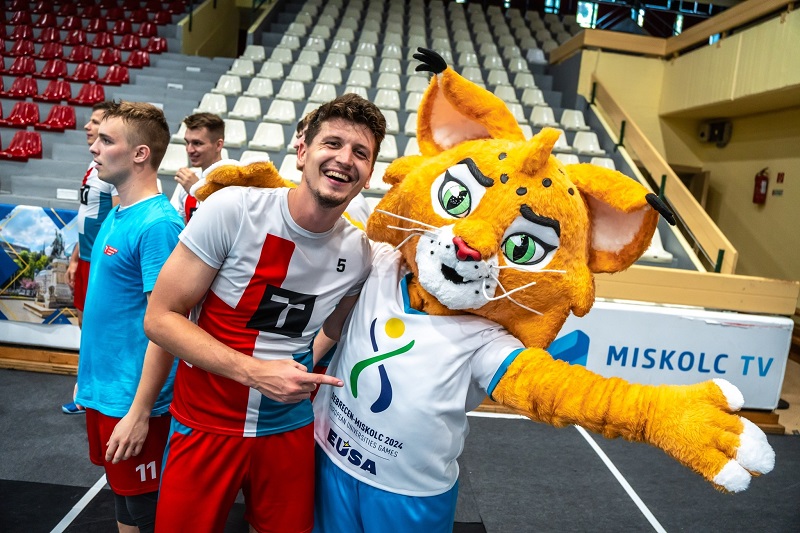
Sports: 3x3 basketball, table tennis, futsal, judo, karate, handball, kickboxing, basketball, football, volleyball, chess, beach handball, beach volleyball, taekwondo, tennis, badminton, and water polo.
Medals by country:
1st place Hungary with 58 medals (16 gold, 18 silver, 24 bronze).
2nd place Turkey with 52 medals (15 gold, 13 silver, 24 bronze)
3rd place Croatia with 30 medals (15 gold, 7 silver, 8 bronze).
Participating universities (non-exhaustive list) ranked according to their overall league table - total number of medals (gold, silver, bronze medal numbers in brackets):
1. University of Zagreb (CRO) 24 (13, 6, 5)
2. Hungarian University of Sports Science 17 (6, 3, 8)
3. Gazi University (TUR) 17 (6, 3, 8)
26. University of Szeged 4 (1, 1, 2)
56. Semmelweis University 2 (1, 0, 1)
59. University of Debrecen 2 (0, 1, 1)
80. University of Pécs 2 (0, 0, 2)
Balázs Hankó, Minister of Culture and Innovation, stressed that the event, which brought together five thousand athletes from more than 400 universities in 17 sports from nearly 40 countries, was more than a sports competition "because friendships were also forged". He added that the closing event brought communities together, as the university sports community met the festival community. He spoke of the Hungarian team, which he said was a source of pride, as our students had won sixteen gold medals.
Zoltán Szilvássy, the rector of the University of Debrecen, thanked the students, stressing that "they are all winners”.
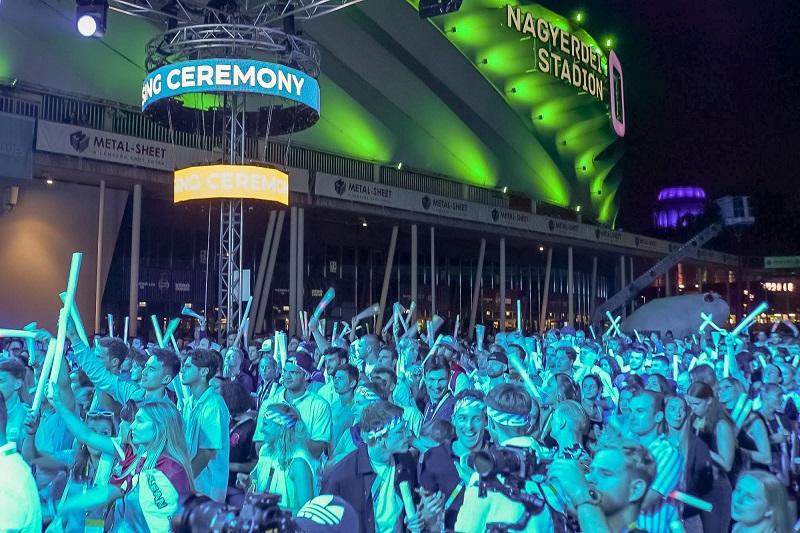
Adam Roczek, President of the European University Sports Association (EUSA), said he hoped the participants had made memories and experiences that would last a lifetime. They could meet again at the 2026 Games in Salerno, Italy, he said in his closing remarks.
Photos by EUSA, MEFS
